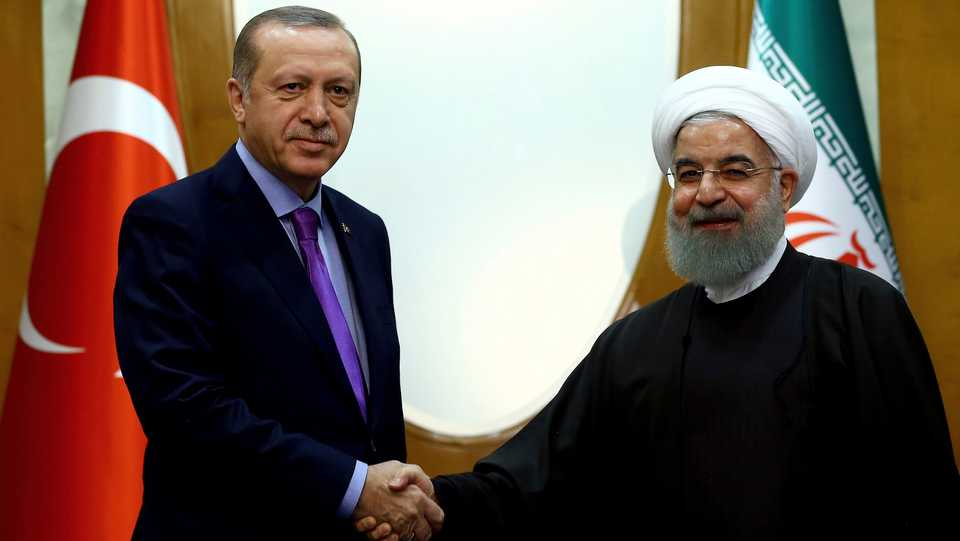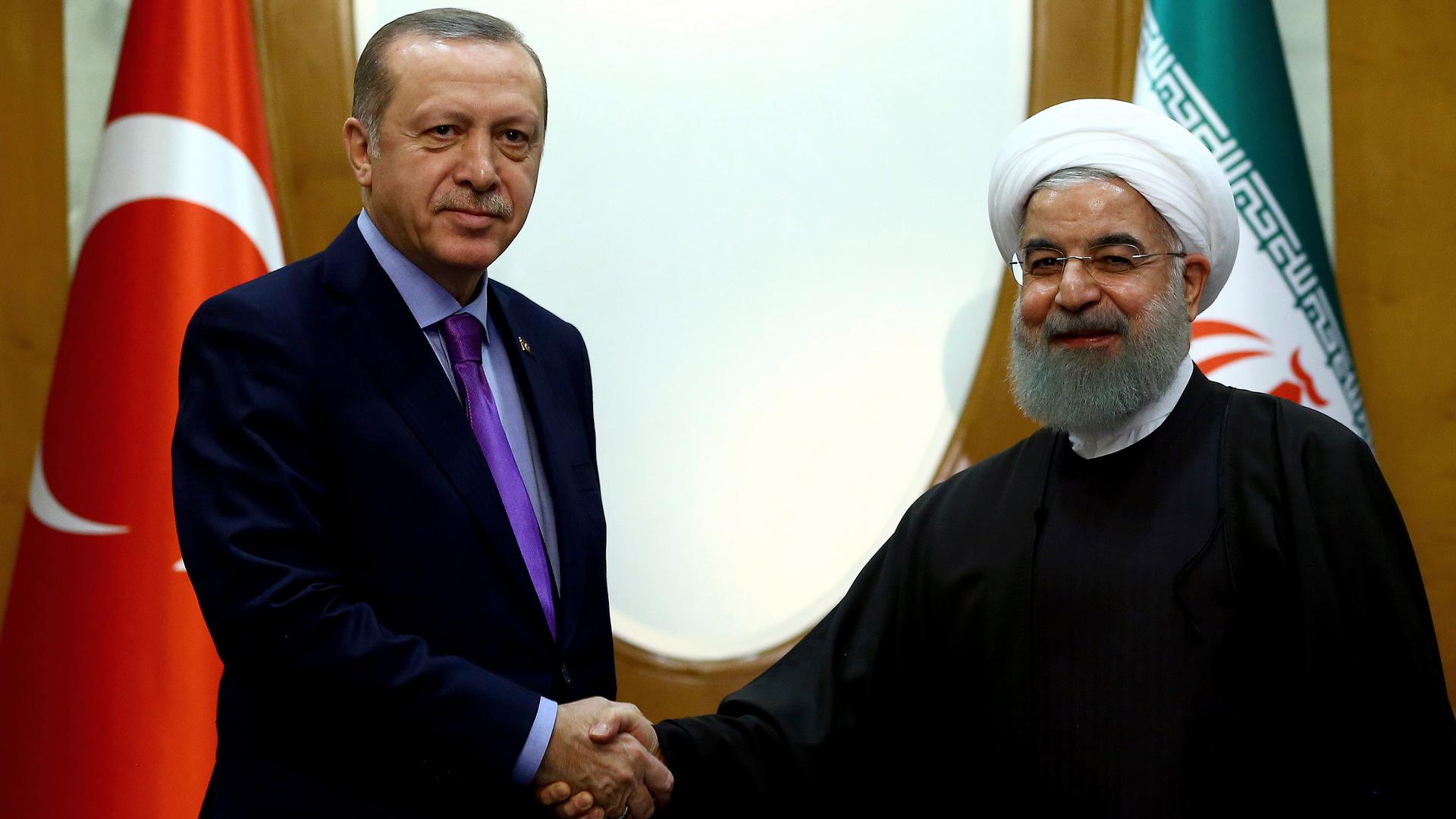
Turkey’s President Recep Tayyip Erdogan stressed the importance of peace and stability in Iran in a phone call on Wednesday with his Iranian counterpart Hassan Rouhani, a Turkish presidential source said.
The two leaders discussed the protests across Iran that have been ongoing since December 28, the source said.
Erdogan also welcomed Rouhani’s remarks on urging the public to not violate their country’s laws while exercising their right to peaceful protests.
Rouhani told Erdogan he hoped the protests, which have left at least 21 people dead, would end within a few days, the source said, who spoke on condition of anonymity due to restrictions on talking to the media.
TRT World’s Hasan Abdullah has more from Turkey’s capital Ankara.
Pro-government protests
In Iran, pro-government rallies in several cities drew thousands of marchers on Wednesday, following six days of rare unrest that took the country’s leaders off guard.
State television broadcast live pictures of rallies in Kermanshah, Ilam and Gorgan, where marchers waved Iranian flags and pictures of Supreme Leader Ayatollah Ali Khamenei.
The boldest challenge to Iran’s established order in almost a decade had continued into Tuesday night, with postings and video footage on social media showing riot police deployed in force in several cities.
Khamenei on Tuesday accused Iran’s foes of fomenting the unrest.
On Wednesday, marchers voiced their support for Khamenei, chanting, “The blood in our veins is a gift to our leader” and “We will not leave our leader alone.”
Economic protests gain political dimension
The protests, which began over economic hardships, have taken on a rare political dimension, with a growing number of young people calling on Khamenei to step down.
They are the biggest since unrest in 2009 that followed the disputed re-election of then-President Mahmoud Ahmadinejad.
At least 21 people have been killed during the unrest, including two members of the security forces.
More than 450 protesters have been arrested in the capital Tehran in recent days, and hundreds of others were detained around the country, according to officials.
A judicial official said some could face the death penalty.
“The seditionist rioters should be executed,” marchers chanted on Wednesday, while posters they carried said hostile “hidden hands” — a reference to alleged outside interference from the US, Israel and UK — should be cut off.
In at attempt to control the flow of information and calls for anti-government gatherings, Tehran authorities have restricted access to the Telegram messaging app and Instagram, owned by Facebook Inc.
High prices, alleged corruption and mismanagement are fuelling the anger.
TRT World spoke to Mohammad Marandi, head of the North American Studies department at the University of Tehran about the nature of the unrest in the country.
Threat to Iran’s nuclear deal
President Hassan Rouhani championed a deal struck with world powers in 2015 to curb Iran’s nuclear programme in return for the lifting of most international sanctions.
However, he has failed to deliver on promises of prosperity in the OPEC oil producer where youth unemployment reached 28.8 percent last year.
The nuclear deal is facing its biggest challenge since it was struck, with US President Donald Trump due to decide by mid-January whether to continue waiving US sanctions or reimpose them.










Discussion about this post